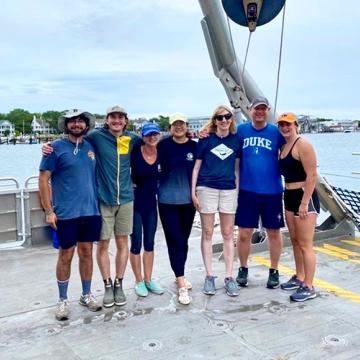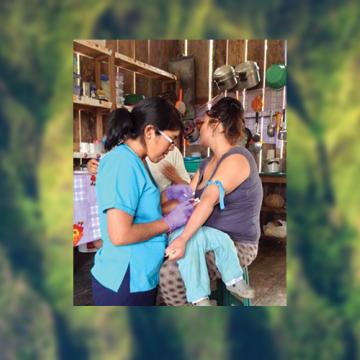-
NewsKidney disease is typically linked to conditions like diabetes and high blood pressure, which gradually wear down the kidneys’ delicate systems that keep the body in balance. But the communities that Duke University researchers Nishad Jayasundara , PhD, and nephrologist Anna Strasma , MD, study are facing a different problem.
-
NewsModeling experiments show Pacific warm and cold patches persisted even when continents were in different places
-
NewsMeet the Hunt Lab, learn more about its research focus, a lab member's experience in the lab and the opportunities the lab offers Duke students.
-
NewsMeet the Marine Robotics and Remote Sensing Laboratory, learn more about its research focus, lab members' experiences in the lab and the opportunities the lab offers Duke students.
-
NewsMeet the Patino-Echeverri Lab, learn more about its research focus, lab member's experiences in the lab and the opportunities the lab offers Duke students.
-
NewsThe vast size of the ocean makes tracking human activity there challenging, but a new study provides a startling glimpse of how extensive this activity has become in recent years and how much of it occurs outside of public monitoring.
-
NewsMeet the Stapleton Lab, learn more about its research focus, a postdoc's experience in the lab and the opportunities the lab offers Duke students.
-
NewsGulf War Illness (GWI), which affects approximately 250,000 U.S. veterans, has been found to significantly reduce the ability of white blood cells to make energy and creates a measurable biochemical difference in veterans who have the disease. The finding comes from a physician who noticed GWI symptoms paralleled those of mitochondrial diseases. Analysis revealed significantly lower levels of extracellular acidification and oxygen consumption in the white blood cells of veterans with GWI.
-
NewsA new study on the impacts of prenatal exposure to toxic metals linked to artisanal gold mining and other sources in Madre de Dios, Peru, finds that mercury has no direct effect on a newborn’s birth weight or gestational age. It’s a different story, though, for lead, which may also be released by mining operations but more likely is consumed when people eat wild game that inadvertently still contains small bullet fragments.
-
NewsDuke University scientists have received a five-year, $2.6 million grant from the National Institute of Environmental Health Sciences (NIEHS) to study molecular mechanisms that can help our bodies fight respiratory inflammation caused by air pollution.
-
NewsPeople in areas where drinking water is contaminated with PFAS often want to know their PFAS blood levels but have trouble gaining access to reliable testing, which traditionally involves having their blood drawn by a medical professional.
-
NewsResearchers at Duke University’s Nicholas School of the Environment and Pratt School of Engineering are co-leading a new National Science Foundation-funded project that aims to boost economic development and climate resilience in coastal North Carolina through nature-based scientific and technological innovations.
-
NewsA new study by researchers at Duke University and WWF aimed to accurately track the expansion and retraction of small ephemeral water bodies from the wet to dry seasons across the KAZA region.
-
NewsThe five-year grant renewal will support five new or newly refocused research projects investigating the long-term health impacts of early-life exposures to polycyclic aromatic hydrocarbons (PAHs) and toxic metals such as lead, which are two of the most common classes of hazardous contaminants found today in areas with a legacy of industrial pollution.














